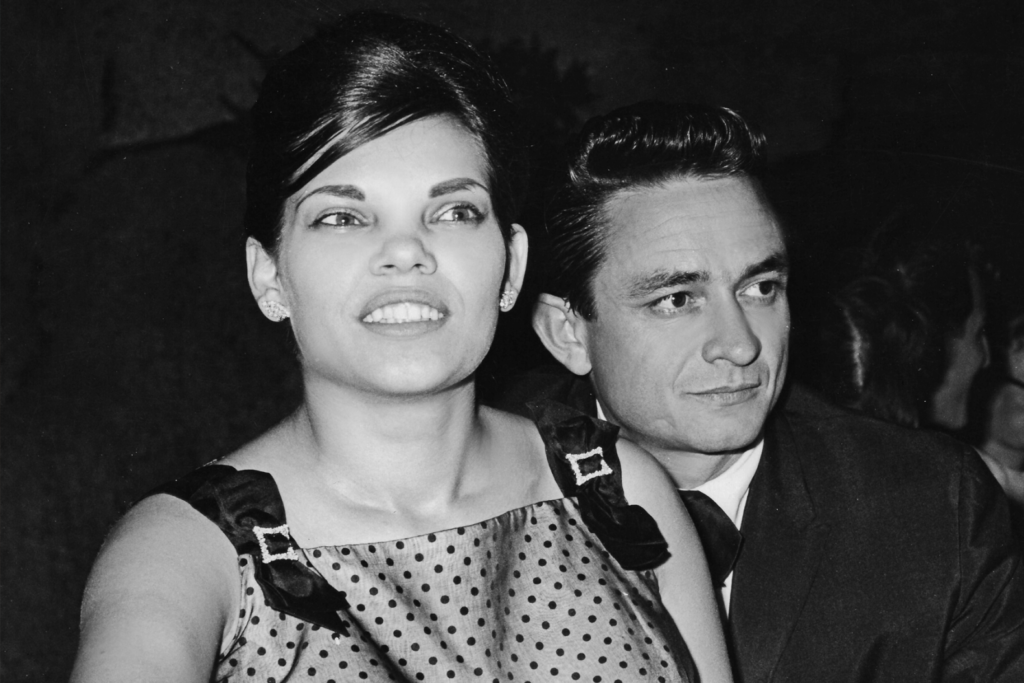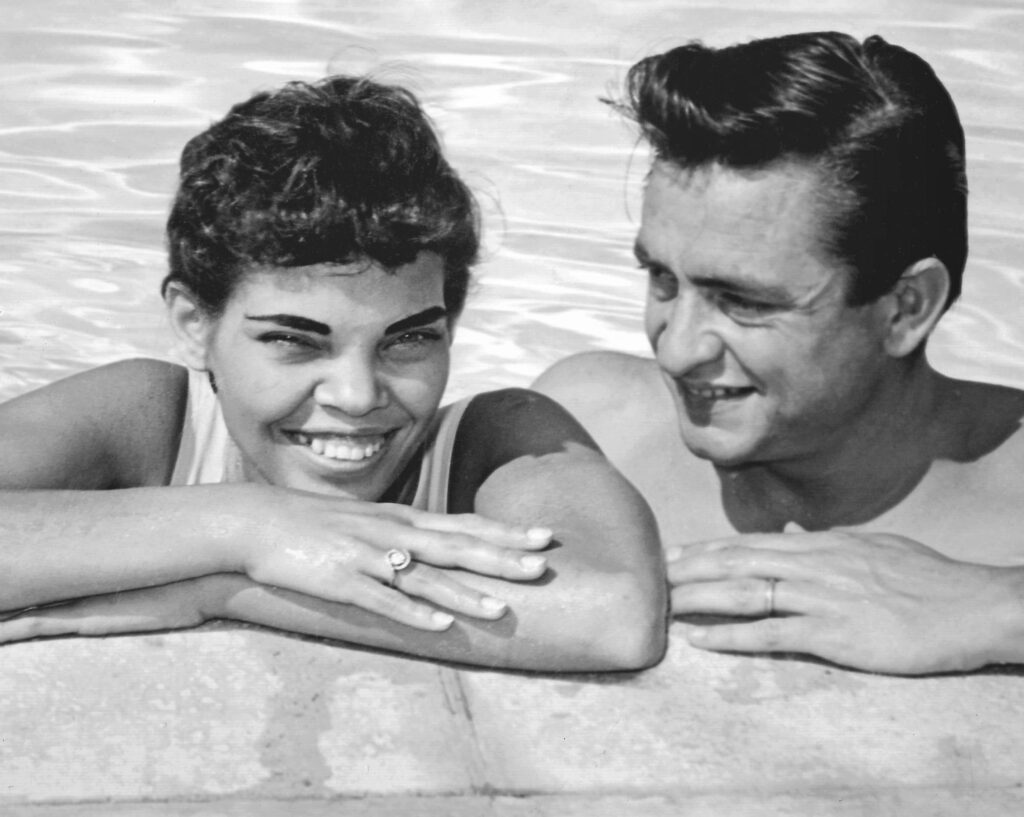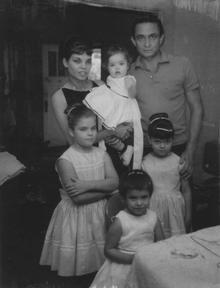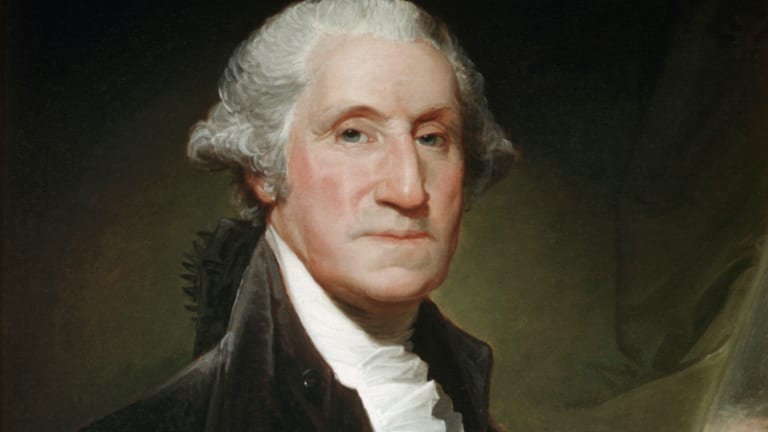Vivian Liberto, also known as Vivian Cash, is most well known for being the wife of famous country star Johnny Cash. The two’s relationship had a deeply romantic start before it spiraled due to Cash’s changing lifestyle with his fame.
Despite a divorce, Vivian remained connected to Cash. She experienced some of the darkest moments of his career, even becoming the subject of a slanderous scandal herself. Her story highlights that fame is not limited to a single person, but affects every aspect of a celebrity’s life in ways they cannot control.

A Rapid Romance
Vivian Liberto was born in San Antonio, Texas in 1934. She was the daughter of Irene, a homemaker, and Thomas Liberto, an insurance salesman.
In 1951, when she was 17, Vivian met a 19-year-old man enlisted in the Air Force, John R. Cash. The couple quickly hit it off and dated for a few weeks, but then Cash was deployed to Germany for a three-year tour of duty.
The two remained in contact, exchanging thousands of letters over that period and enhancing their relationship. When Cash earned an honorable discharge for his service and returned to the States, he ran back to San Antonio to marry Vivian.
Her uncle was a Catholic priest and presided over the wedding in August of 1954. Little did she know that her husband was going to quickly evolve into one of the most famous musicians in history.
I Walk the Line and the Rise to Fame
The couple moved to Memphis, Tennessee shortly after their wedding, where Cash became a vacuum salesman. This career did not last long, however. Within a year, Cash signed with Sun Records which springboarded his country music career.
Within six months, he was creating chart-topping music. In 1956 he released “I Walk the Line” which topped the country music charts and entered the pop top 20 charts.
The song was a love ballad to his new wife and a testament to his love. He claims to have written it backstage of a show in 1956, and that he saw it as another form of his vows to Vivian.
It was originally supposed to be a slow ballad, in line with the romantic message behind the lyrics, but Cash’s producers forced him to speed it up. Regardless, the message of the song has reached millions of people and stands as one of the most famous love songs in history.

Vivian Divorces Cash
The fame of the song was only surpassed by the young couple’s love for each other. In 1961, a few years after Cash’s career took off, he moved Vivian and their four kids moved to California with his newfound wealth.
But while the wealth of the family grew, Cash’s demanding career kept him out on the road and away from his family consistently. This left Vivian’s dream romance falling apart. She was away from the rest of her family and left alone to raise their children.
Compounding this loneliness was Cash’s slow descent into the sins of stardom. By the mid-1960s, he had devolved into near-constant drug and alcohol use.
Being on the road away from his family and a lack of sobriety united to create a consistent pattern of adultery as well. This led Vivian to file for divorce once she found out about Cash’s budding relationship with June Carter.

Vivian’s Ancestry in Question
The couple were estranged for years before the divorce. However, Vivian still maintained a positive public image for the sake of Cash’s career.
In 1965, Cash was arrested for drug smuggling and possession, so she flew out to testify at his trial in El Paso. A photograph taken of the couple leaving the courthouse was doctored by The Thunderbolt to make Vivian appear darker than she was.
The Thunderbolt was a racist newsletter written by a KKK leader. It was distributed across the American South by the National States’ Rights Party, a racist party ardently against integration.
The article attached to the photo accused Cash’s wife of being Black. Vivian was of Sicilian ancestry and had naturally tanner skin, but the photograph was altered to make her appear darker than she was.
Cash hired a lawyer to combat the accusation. It is unclear whether he hired the lawyer to protect his career against the accusations of marrying a Black woman, or if he wanted to protect the woman he once loved against the vitriolic hate of the racist South.
A Resurgence of Hatred
Although the couple divorced a year later, Vivian still was not free of the hate. As Cash became vocal about Native American rights, the KKK began their hateful campaign yet again.
They burned a cross in Cash’s yard and wrote Cash and Vivian hate mail and death threats. Cash’s lawyer stepped up and handled the slander through threats of lawsuits and editorials in national tabloids.
He even did a genealogical test to trace Vivian’s ancestry and lay the accusations to rest. This is when her Sicilian ancestry was revealed to the public, and Cash was allowed to perform in the South again.
Revealing Vivian’s Story
Vivian remained largely reserved for the rest of her life. She hardly ever spoke publicly about her experience with Cash.
She published a memoir, called I Walked the Line in 2008, discussing her romantic story turned tragic falling out of love. Her family also contributed to the production of a documentary released in 2020 called My Darling Vivian.
This most famously featured their eldest daughter Roseanne Cash who is also a singer/songwriter. While Cash’s life is very well-known, Vivian is finally gaining the recognition she deserves.
References
Betts, Stephen L. “Johnny Cash’s First Wife Profiled in New Doc ‘My Darling Vivian’: What We Learned.” Rolling Stone, April 29, 2020. https://www.rollingstone.com/music/music-country/johnny-cash-first-wife-my-darling-vivian-movie-991700/.
Dolores, Bee. “Vivian Cash (Things To Know About Johnny Cash’s First Wife).” Nashville Gab, September 1, 2023. https://nashvillegab.com/vivian-cash/.

